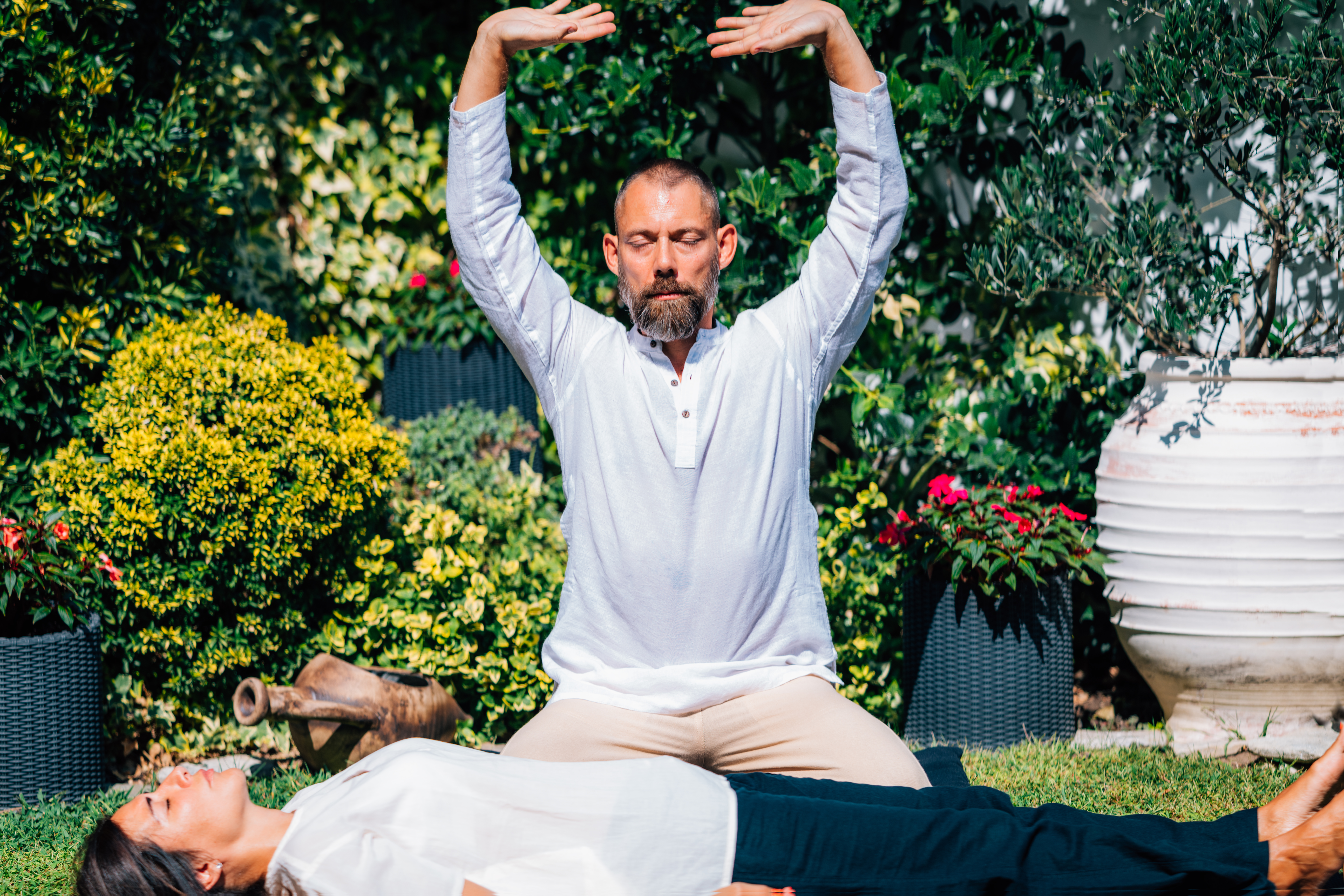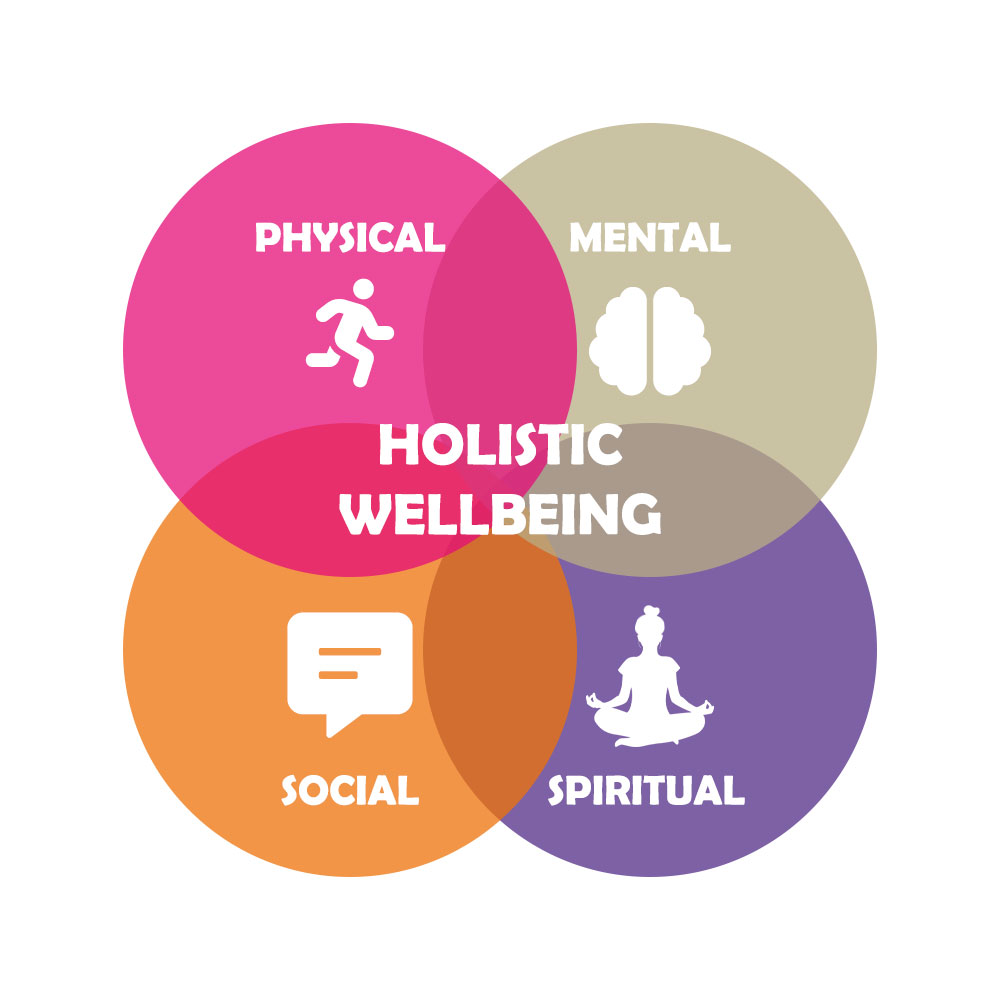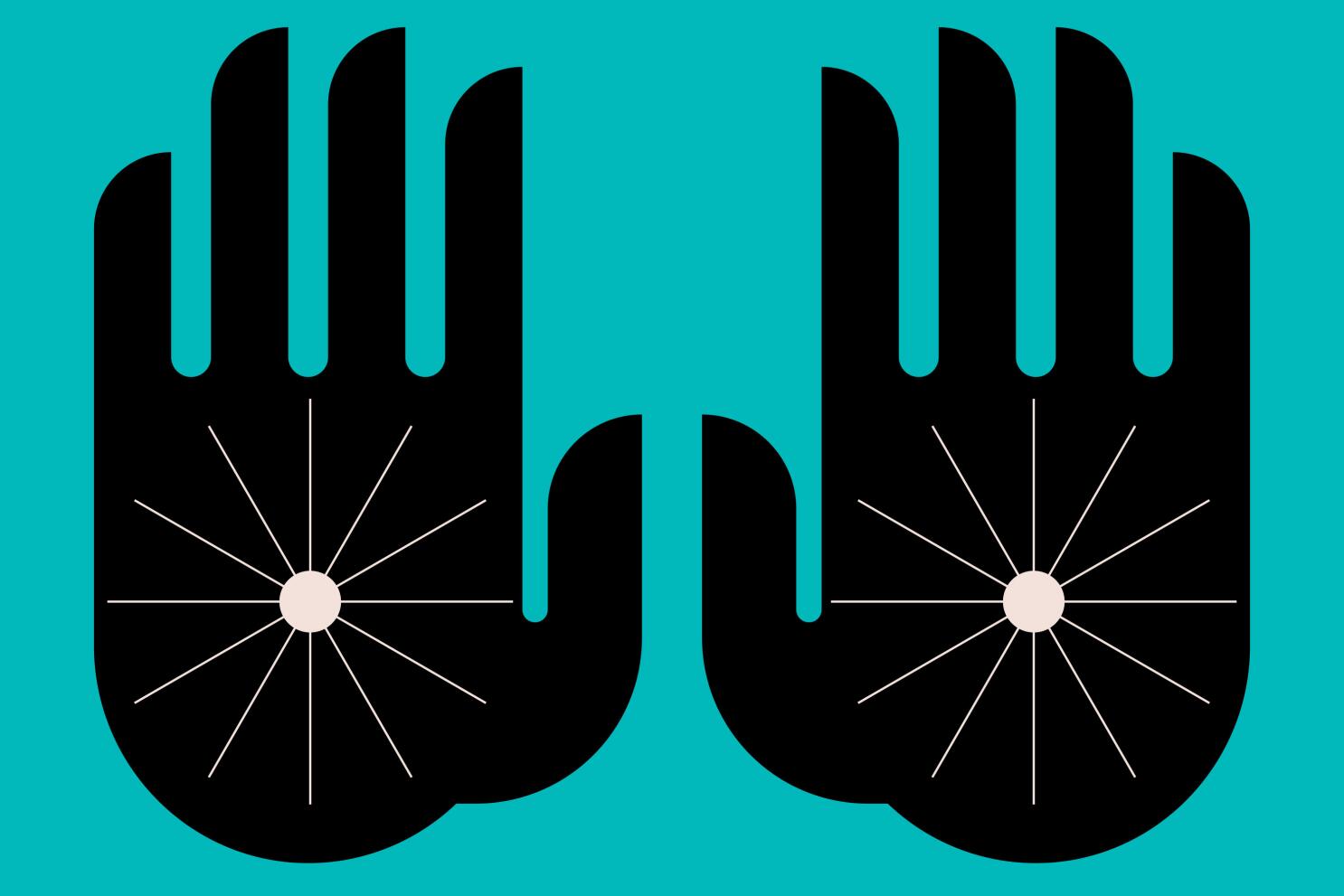In a fast-paced world filled with stress and anxiety, finding avenues for relaxation and holistic healing has become increasingly important. Reiki, an ancient Japanese energy healing technique, has emerged as a powerful modality for promoting overall well-being and positive experiences. In this article, we will explore the transformative power of Reikiand share some uplifting stories of individuals who have had positive experiences with this alternative therapy.
What Is Reiki Therapy?
Reiki therapy is a profound and ancient healing practice that taps into the universal life force energy, often referred to as 'ki' or 'chi.' This holistic approach to healing involves the transfer of this vital energy through the hands of a trained practitioner onto the patient. The term 'Reiki' itself can be translated as 'universal life energy,' reflecting its core principle that energy flows through all living things. By harnessing and directing this energy, Reiki aims to restore balance and harmony within the mind, body, and soul.
The Essence Of Reiki Healing
At the heart of Reiki therapy lies the belief that our bodies have the innate ability to heal themselves when the energy within them is balanced. When this energy becomes blocked or disrupted, it can lead to physical, emotional, or spiritual ailments. Reiki practitioners act as conduits for this universal life energy, channeling it to the recipient with the intent of clearing blockages and facilitating the healing process.
Complementary To Traditional Medicine
Reiki therapy is often used in conjunction with conventional medical treatments, functioning as a complementary therapy. It is renowned for its potential to alleviate stress, anxiety, and pain, making it a valuable addition to the toolbox of modern healthcare. The non-invasive nature of Reiki allows it to be administered to people of all ages, from infants to the elderly, without the need for specialized equipment or invasive procedures.
The Reiki Session Experience
During a Reiki session, the patient remains fully clothed and is typically either lying down or comfortably seated. The practitioner places their hands gently on or near the patient's body, following a specific pattern and sequence of hand positions. These positions are designed to correspond with the body's energy centers, known as chakras, as well as areas where energy blockages may be present.
As the practitioner connects to the universal life energy, patients often report experiencing a profound sense of deep relaxation and inner peace. This tranquil state can lead to various positive outcomes, such as reduced stress, improved mood, and enhanced overall well-being.
A Holistic Approach To Healing
Reiki therapy transcends the physical realm by addressing not only bodily ailments but also the emotional and spiritual aspects of a person's well-being. By fostering balance and harmony within the energy system, it aims to promote holistic healing. Many individuals who seek Reiki therapy do so not only to alleviate physical symptoms but also to embark on a journey of self-discovery and personal growth.
Reiki For Pain Management And Holistic Healing
One of the most compelling aspects of Reiki therapy is its remarkable effectiveness in the realm of pain management and holistic healing. This gentle yet potent healing modality has been a source of relief for countless individuals dealing with chronic pain conditions and has played a significant role in promoting their overall well-being.
Unlocking The Power Of Self-Healing
At its core, Reiki operates on the premise that the human body possesses a remarkable capacity for self-healing when its energy flows freely and harmoniously. Chronic pain often results from energy imbalances or blockages within the body's energy system. Through the skilled hands of a Reiki practitioner, these blockages are gently cleared, and the energy centers, or chakras, are realigned.
As a result, the body's innate healing mechanisms are awakened, reducing the need for medication or invasive treatments. Many individuals who have integrated regular Reiki therapy into their pain management regimens report a significant decrease in their reliance on pain medications and an improvement in their overall quality of life.
A Path To Pain Reduction
Individuals with chronic pain conditions, such as arthritis, fibromyalgia, or back pain, often find themselves trapped in a cycle of discomfort and frustration. Reiki offers them a ray of hope by gradually diminishing the intensity and frequency of their pain. As energy blockages are dissolved, the body's ability to address the root causes of pain is enhanced, leading to substantial relief over time.
Through a series of Reiki sessions, individuals experience not only physical relief but also emotional and mental benefits. The reduction in pain fosters a sense of empowerment and optimism, creating a positive ripple effect in their lives.
Balancing Mind And Body
Beyond its physical effects, Reiki therapy also exerts a profound influence on mental health. By promoting deep relaxation and reducing stress, Reiki can be a valuable ally in alleviating symptoms of anxiety and depression. When we face emotional distress, our energy centers can become blocked or disrupted. Reiki, with its capacity to restore energetic balance, helps individuals release emotional burdens and find greater emotional stability.
Regular Reiki sessions provide a sanctuary for emotional healing, fostering a sense of peace and clarity. As energy flows freely throughout the body, individuals often report an improved outlook on life, reduced anxiety, and a brighter sense of hope for the future.
Holistic Well-Being
In essence, Reiki therapy transcends the boundaries between physical and mental health. It addresses the whole person, recognizing that physical pain and emotional suffering are interconnected. Through the restoration of energetic balance, Reiki contributes not only to pain reduction but also to enhanced overall mental and emotional well-being.
Harnessing The Transformative Power Of Positive Energy In Reiki
The essence of Reiki revolves around the profound influence of positive energy. Practitioners firmly believe that by tapping into this wellspring of positivity and directing it towards the recipient, they can trigger remarkable healing experiences on multiple levels. Let's delve deeper into real-life anecdotes that illustrate the remarkable potential of positive energy harnessed through Reiki.
Stress Relief And Mental Clarity
Meet Jennifer, a high-powered executive navigating the turbulent waters of the corporate world. Chronic stress and anxiety were her constant companions, affecting both her professional and personal life. Upon hearing about the calming effects of Reiki, she decided to embark on a journey of inner tranquility.
Through a series of Reiki sessions, Jennifer experienced a transformation that left her astounded. The infusion of positive energy during these sessions acted as a soothing balm for her frazzled nerves. She described Reiki as her sanctuary, likening it to pressing a "reset button" for her mind. The chronic stress that once clouded her days began to dissipate, replaced by an unexpected clarity and calmness.
"I now face challenges with a sense of calm and clarity I never thought possible," Jennifer exclaimed. The power of positive energy, channeled through Reiki, not only alleviated her stress but also granted her the mental resilience to navigate life's complexities with newfound serenity.
Pain Management And Healing
John's story offers a compelling testament to the transformative potential of Reiki in the realm of pain management and healing. A retiree grappling with years of unrelenting arthritis-related pain, he had exhausted conventional medical treatments. Frustration and persistent discomfort led him to seek solace in Reiki as a last resort.
To John's astonishment, Reiki didn't merely offer temporary relief—it initiated a profound shift within him. While the pain persisted, there was a noticeable change in its intensity and how he perceived it. "I can't explain it, but something changed inside me," John reflected. "The pain is still there, but it's more manageable, and I have a renewed sense of hope."
This newfound hope, ignited by the infusion of positive energy through Reiki, allowed John to regain control over his life. While his condition hadn't vanished, the positive energy harnessed during his sessions empowered him to cope more effectively, fostering resilience and optimism.
The Universal Healing Power Of Positive Energy
These two stories underscore the universal healing power of positive energy in Reiki. It transcends the boundaries of physical and mental well-being, permeating every facet of our existence. By aligning the body's energy centers and encouraging the flow of positive energy, Reiki facilitates transformations that often defy conventional explanation.
Reiki's Holistic Approach To Wellness - Nurturing Mind, Body, And Spirit
In a world where the lines between physical health and mental well-being often blur, the holistic approach to wellness takes center stage. Reiki, with its roots in ancient wisdom and the flow of universal life energy, epitomizes this holistic philosophy, embracing the interconnectedness of mind, body, and spirit. The positive experiences shared earlier shed light on how Reiki transcends symptom management to address the very core of our well-being.
The Mind-Body-Spirit Connection
At the heart of Reiki's holistic approach is the belief that human beings are not isolated systems. Instead, we are intricate, interconnected networks where our thoughts, emotions, physical health, and spiritual harmony are inextricably linked. Reiki recognizes that imbalances in one area can ripple through our entire being, manifesting as physical ailments, emotional turmoil, or spiritual disconnect.
Through the channeling of positive energy, Reiki seeks to harmonize these dimensions of our existence. As energy blockages are dissolved, and the chakras—the body's energy centers—are balanced, individuals often experience profound transformations that touch every aspect of their lives.
Beyond Symptom Management
While conventional medicine primarily focuses on symptom management and the physical aspects of illness, Reiki delves deeper. It seeks to unearth the root causes of ailments, whether they originate in the body, mind, or spirit. This holistic perspective is evident in the stories of Jennifer and John, who discovered that their experiences with Reiki extended far beyond pain reduction and stress relief.
Jennifer's journey to mental clarity and emotional equilibrium exemplifies how Reiki can address the mental and emotional aspects of wellness. By unblocking the energy pathways in her body and infusing her with positive energy, Reiki not only alleviated her chronic stress but also nurtured her mental resilience, allowing her to face life's challenges with newfound calm and clarity.
John's story, on the other hand, highlights the spiritual dimension of Reiki's holistic approach. Although his physical pain remained, the infusion of positive energy rekindled his hope and renewed his sense of purpose. His experience demonstrates that Reiki can provide a profound sense of spiritual healing and resilience in the face of adversity.
A Balanced Journey To Wellness
In essence, Reiki embodies the idea that true wellness is achieved when the mind, body, and spirit exist in harmony. It's a journey where physical pain, emotional turmoil, and spiritual disconnection are addressed holistically. Through the skilled hands of a Reiki practitioner, individuals embark on a transformative path that allows them to reconnect with themselves on multiple levels.
Choosing The Right Reiki Practitioner - Your Partner On The Healing Journey
When embarking on a Reiki healing journey, one of the most critical decisions you'll make is selecting the right practitioner. The practitioner serves as your conduit to the healing power of Reiki, making their expertise and professionalism essential to the success of your experience. Here's a closer look at how to choose a Reiki practitioner who can guide you towards positive and transformative experiences.
Certification And Training
The cornerstone of a competent Reiki practitioner lies in their certification and training. Reiki is an intricate art that requires in-depth knowledge, practical skill, and a profound understanding of energy dynamics. Seek out practitioners who have received formal training from reputable sources. Reiki practitioners are typically certified at different levels, such as Reiki I, Reiki II, and Reiki Master/Teacher. The level of certification can provide insight into their expertise and experience.
Recommendations And Referrals
Word of mouth is a powerful tool when it comes to choosing a Reiki practitioner. Reach out to friends, family, or acquaintances who have undergone Reiki therapy and ask about their experiences. Recommendations and referrals from individuals who have witnessed the benefits of Reiki firsthand can be invaluable. They can provide insights into the practitioner's approach, professionalism, and the overall effectiveness of the therapy.
Interview Potential Practitioners
Before committing to Reiki sessions, consider conducting interviews with potential practitioners. This allows you to get to know them better, discuss your expectations, and gauge their compatibility with your needs. During these conversations, inquire about their training, experience, and approach to Reiki. Pay attention to how they respond to your questions and whether you feel a sense of trust and rapport with them.
Trust Your Intuition
Intuition plays a significant role in selecting the right Reiki practitioner. Pay attention to how you feel when interacting with potential practitioners. Do you feel comfortable, heard, and respected? Trust your gut instincts. A practitioner who instills confidence and a sense of safety is more likely to facilitate a positive and transformative Reiki experience.
Observe Professionalism
Professionalism is a non-negotiable aspect of choosing a Reiki practitioner. Ensure they adhere to ethical guidelines and maintain the highest standards of integrity. Practitioners should provide a safe and confidential environment for sessions, respecting your boundaries and privacy at all times.
Ask For Credentials And References
Don't hesitate to request credentials and references from potential practitioners. Qualified practitioners will be more than willing to provide you with information about their training and background. They may also offer references from previous clients who can vouch for their expertise and the positive outcomes they have facilitated.
Evaluate Their Environment
Consider the physical environment in which the Reiki sessions will take place. It should be clean, comfortable, and conducive to relaxation. A peaceful and harmonious setting enhances the effectiveness of Reiki therapy.
Commitment To Your Well-Being
Ultimately, a skilled Reiki practitioner is committed to your well-being and healing journey. They will tailor the sessions to your unique needs and provide guidance and support throughout the process.
People Also Ask
Why Does Reiki Feel So Good?
Reiki often feels incredibly soothing and pleasant for several reasons:
- Relaxation:During a Reiki session, the practitioner channels positive energy to the recipient, which promotes deep relaxation. This relaxation triggers the release of endorphins, the body's natural feel-good chemicals, leading to a sense of peace and well-being.
- Stress Reduction:Reiki is known for reducing stress and anxiety. As stress levels decrease, the body can shift from the "fight or flight" mode to a more relaxed state, allowing individuals to feel better physically and emotionally.
- Balancing Energy:Reiki aims to balance the body's energy centers (chakras) and clear energy blockages. When energy flows smoothly and harmoniously, it can alleviate physical discomfort and emotional turbulence, resulting in an overall feeling of goodness.
- Mind-Body Connection:Reiki recognizes the connection between the mind and body. By addressing both physical and emotional aspects, it promotes a holistic sense of well-being that many people find profoundly satisfying.
What Are The Experiences Of Reiki Healing?
Experiences during Reiki healing can vary from person to person, but common elements include:
- Deep Relaxation:Many people experience a profound sense of relaxation during a Reiki session, often leading to a meditative or even trance-like state.
- Emotional Release:Reiki can stir up buried emotions and lead to emotional release. This can be therapeutic and may result in feelings of catharsis and lightness.
- Physical Sensations:Some individuals report physical sensations during Reiki, such as warmth, tingling, or a gentle pulsing, as the energy is channeled through the practitioner's hands.
- Clarity and Insight:Reiki sessions can provide clarity and insights into one's life and challenges, helping individuals gain a deeper understanding of themselves.
- Pain Relief:Many people experience a reduction in physical pain or discomfort during or after a Reiki session, although the extent of relief can vary.
- Peace and Well-Being:Overall, Reiki healing tends to leave individuals with a sense of peace, improved mood, and enhanced well-being.
Is Reiki A Positive Energy?
Reiki is often associated with positive energy. Reiki practitioners believe that they are channeling universal life force energy, which is inherently positive and healing in nature. This energy is believed to promote balance and harmony in the recipient's mind, body, and spirit. The infusion of positive energy during a Reiki session is intended to bring about a sense of peace, relaxation, and overall well-being, making it a fundamental aspect of Reiki healing.
Conclusion
In a world where stress and negativity often prevail, Reiki shines as a beacon of positivity and healing. As demonstrated by the stories shared here, Reiki has the potential to bring about profound positive experiences by promoting relaxation, pain relief, emotional healing, and self-discovery.
If you're seeking a holistic approach to wellness that taps into the universal life force energy, Reiki might be the transformative journey you've been searching for. Unlock the positive power of Reiki, and let it guide you toward a healthier, happier, and more balanced life.



